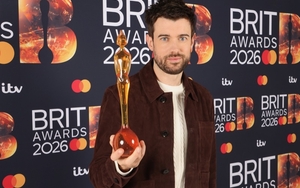A MUNICIPAL-gas and electricity supply company has been called for in a review of environmental issues on Merseyside.
An independent mayoral commission, led by the vice chancellor of Liverpool John Moores University, also wants to see Merseyside’s bus services put back in control of local authorities.
In its main finding, Professor Nigel Weatherill and his five commission members says: “Local political boundaries must be put aside in the interests of the whole region” and that Mayor Joe Anderson should seek a commitment from local political leaders for a single unified vision for an environmentally sustainable city region.
The Commission on Environmental Sustainability, set up by the mayor in July 2013, was tasked with carrying out a review of “what is needed to support Liverpool as a sustainable city when resources will be in scarcer supply and when quality of place will be a key factor in determining economic development”.
The commissioners also urged the establishment of a Northern Commission on Environmental Sustainability.
Professor Weatherill said: “The commission listened to comments, views and ideas on what is required to ensure that Liverpool is environmentally sustainable into the future. It is clear the city faces many challenges.
“Our recommendations range from those that could be implemented immediately to those needing further work and consideration.”
Among the recommendations made are:
- Options for a municipal or city-wide energy company should be considered
- A Director of Environment Sustainability for the city
- The Combined Authority and Merseytravel starting the process of taking back control of the bus network
- Measures to improve safety for cycling
- The Mayor working with community leaders, education leaders and health professionals to raise awareness of environmental sustainability issues
- The universities and colleges tasked to develop an International Research Centre for Environmental Sustainable Cities
- A digital vision be created for Liverpool as a platform to help deliver a smart, green city
- A 'Meanwhile Use' established for plots of land which could be used for community growing, play areas or exercise areas while they are waiting to be developed.
- A green corridor strategy including pedestrianising areas in the ‘Knowledge Zone’
- A waste strategy that cuts across political boundaries and recognises waste as a valuable resource should be developed urgently
- A review of waste collection to improve recycling rates and improve cleanliness at a reduced cost
The commission heard from young people, school students, businesses, public sector, third sector, community and faith groups, experts and individuals and looked at good practice in cities in the UK and wider afield.
Professor Weatherill added: “Whilst we do not underestimate the size of the challenges we have proposed through our recommendations, we are clear the position of doing nothing and rolling existing practices forward on a day to day basis is not an option. We can look at other cities in the UK and around the world and assess what they are doing, but the immediate priority is to look at ourselves and ask what actions are we taking to ensure the environmental sustainability of the city for the future.”
Mayor Anderson said: “The report’s findings are challenging but if we are to create in the words of the report, “a happy healthy clean city for current citizens and future generations”, we have to take action – and, indeed we are already involved with a number of initiatives which will take that agenda forward.
"We will be giving very serious consideration to the suggestions in the report.”









